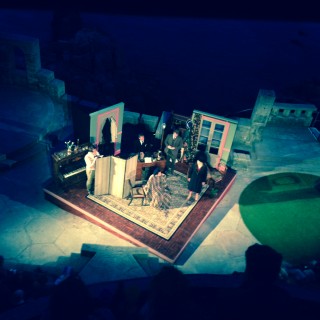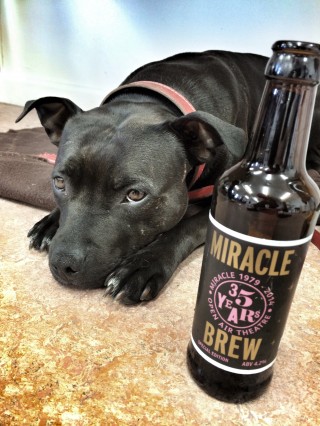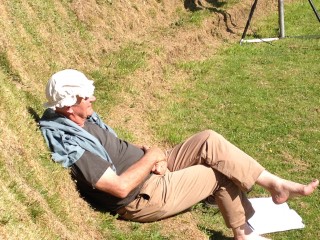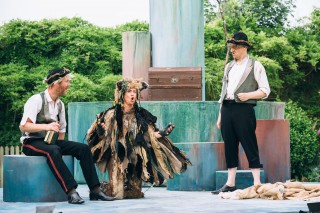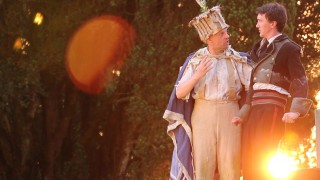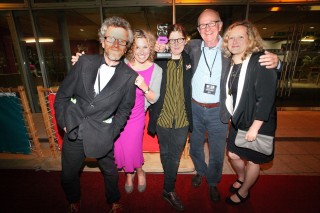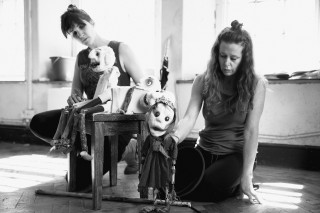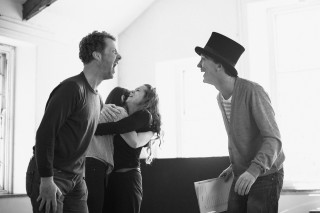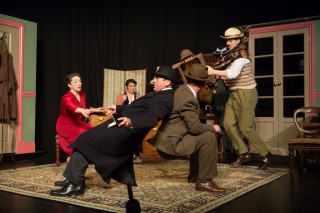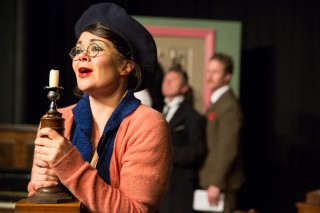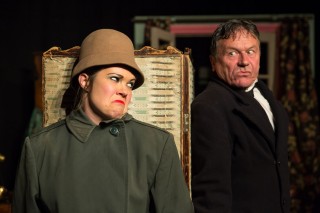July 11The TempestBill Scott interviewed by What’s On Editor, Lee Trewhela
IT’S EASY to forget now there’s such a healthy theatre scene in Cornwall, but it was a very different scenario back in 1979.
That was the year the county’s masterful Miracle Theatre started, but according to its artistic director Bill Scott it was a very different time.
He told me: “Footsbarn were about to leave for France as the local council wouldn’t fund them and Kneehigh were yet to start – it felt very bleak.”
However, the departure of the now legendary Footsbarn was the catalyst needed for Miracle.
Bill added: “Footsbarn were a huge influence on me. I’d walked into their tent on The Lizard and what I saw changed things for me.
“I’d done repertory theatre but was running a health food shop at the time. However, I got together with a couple of friends who were actors and we put on an irreverent version of the Ordinalia called The Beginning Of The World.
“People were staging the Ordinalia 700 years ago in Cornwall – that was the antecedence of what we were to do.”
That show was seen by approximately 2,000 people. The estimated audience for their 35th anniversary production of The Tempest this summer is 15,000.
Bill said: “We had to persuade people it was okay to put on a play in their park, beach or castle. I suppose we were groundbreaking really.”
He describes Miracle’s choice of production (often three different shows a year) as “very random” though there is always a Shakespeare play every three or four years.
“There was a lot of historical stuff originally as we worked for English Heritage in the early 1980s,” he said. “That’s when we honed our particular type of comedy where the audience is right in your face. I think the turning point for us was a Dark Ages comedy called The Scapegoat.
“We got some funding from the Foundation for the Sports and Arts, which got us a van. Things got bigger – I remember Quasimodo at the Minack, where we had a huge scaffolding tower; that show was expensive by our standards.”
He added that Miracle favourite The Case Of The Frightened Lady, on the other hand, is a little show but one with a big future.
“We revived it this year because it’s so popular and works on lots of different levels. We have an eye on taking it further, but need a good producer on board.”
I commented on the bravery of touring Samuel Beckett’s opinion-splitting Waiting For Godot across the South West last summer.
Bill said: “At Bude I watched the audience come straight from the beach and was really not sure it was going to work, but they loved it.
“That’s proof that theatre is an activity that everyone can enjoy.”
This year Miracle celebrates its 35 years of producing inventive and enjoyable theatre with that new production of The Tempest, which began a 60-date last month.
Bill said of the play: “We’ve brought out the comedy and condensed it – a third of the play has gone so it’s not an endurance test, but the purists should still enjoy it. Hopefully, audiences won’t realise they’re not watching ‘normal’ Shakespeare.
“I’ve changed the language so it’s not archaic, though the speeches are fundamentally the same – no complaints yet, unlike when we staged Hamlet and I’d introduced a new scene at the beginning. An old chap stood up quite dramatically, shouted ‘piffle’ and stormed off – the audience found that very amusing.”
This anniversary year should also see the completion of the film version of 2012’s superb Tin.
“We’ve not got the money for a big marketing campaign, we hope it will sell itself at film festival and with distributors. It will also tour World Heritage Sites and there is an audience for Cornwall and mining history in America and Australia,” Bill added.
“We have Arts Council funding for the next three years; it feels like a new beginning. Miracle now tours to 100 venues, mostly in the South West, but also places like Canary Wharf where we put on free shows for people leaving the office.
“We had 500 people watching Waiting For Godot there last year.”
Miracle’s next show will be Dr Livingstone I Presume, telling the story of Livingstone, Stanley and the partition of Africa through Music Hall songs in a pop-up proscenium theatre.
Bill concluded: “I start with an idea – and with 50 shows, I don’t start as interested in some as others, but once I start researching the subject, I get obsessed with all of them.
“It’s a gift really – I’m very lucky to have a job I love doing.”
